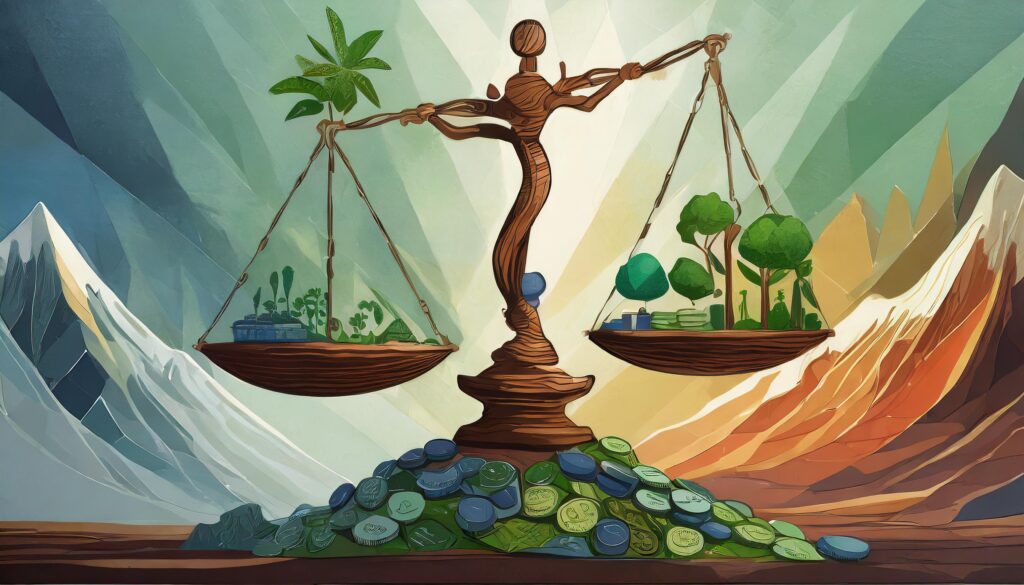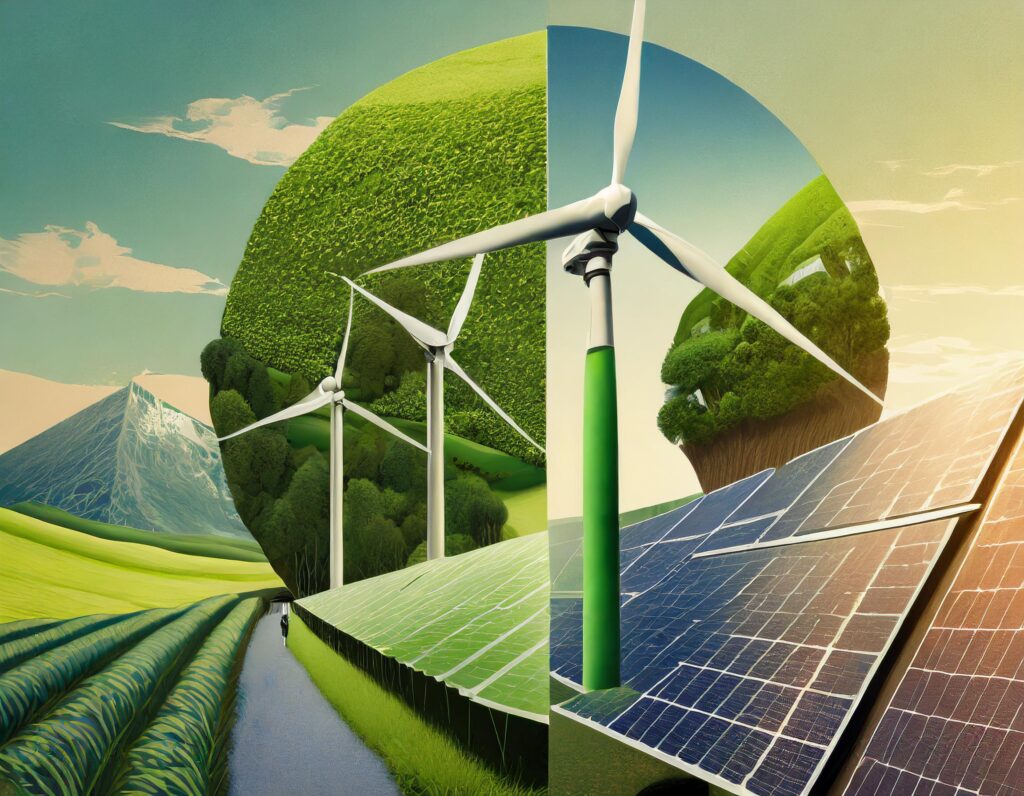Balancing Economic Transformation, Sustainability, and Environmental Justice in South Africa

In the heart of South Africa’s journey towards economic development lies a delicate balancing act between economic transformation, sustainability, and environmental justice. As a nation rich in natural resources and cultural diversity, South Africa is grappling with the challenge of fostering economic growth while safeguarding its environment and ensuring equitable access to resources for all its citizens. At the core of sustainable development is the recognition that economic progress must not come at the expense of environmental degradation or social injustice.
This principle resonates profoundly with South Africa, a country that has a complex history of colonialism and apartheid which left a legacy of inequality and environmental degradation. Addressing these issues requires a holistic approach that considers the interconnectedness of economic, social, and environmental factors. Economic transformation in South Africa involves not only fostering growth but also correcting historical injustices and disparities.
The country’s transition from apartheid to democracy brought about policies aimed at empowering previously marginalized communities, particularly that of black South Africans. However, the pursuit of economic empowerment must be aligned with sustainability goals to ensure that progress is not achieved at the cost of environmental degradation. One of the critical challenges facing South Africa is balancing the need for economic growth with the preservation of its natural environment. The country’s economy relies heavily on mining, agriculture, and manufacturing, which can have significant environmental impacts if not managed sustainably.
Mining and agriculture have been a source of contention, as they often result in pollution, habitat destruction and water scarcity. Environmental justice demands that the burdens and benefits of development are distributed equitably among all segments of society, regardless of race or socioeconomic status. In South Africa, however, vulnerable communities, often located in proximity to industrial sites or mining operations bear the brunt of environmental degradation. These communities, predominantly constituted of black South Africans face health risks, loss of livelihoods and displacement due to pollution and land degradation. Efforts to promote sustainable development and environmental justice in South Africa require innovative policies and strategies that address the root causes of environmental injustice and promote inclusive economic growth. The concept of a green economy which emphasizes resource efficiency, renewable energy and sustainable practices offers a promising framework for achieving these objectives.
Transitioning to a green economy requires investment in renewable energy sources such as solar, wind and hydro power, as well as promoting energy efficiency and conservation measures. By reducing reliance on fossil fuels and promoting clean energy alternatives, South Africa can reduce its contribution to climate change while creating new opportunities for job creation and economic development.
Another cause for concern, is the presence of bacteria in our water sources. Since 2008, Hammanskraal residents in the North of Pretoria have complained about the water quality in the region.
In 2023, a waterborne disease known as Cholera (caused by E. coli contamination) broke-out and over 300 cases were reported, with more than 30 deaths recorded. Loadshedding was a possible cause for the out of order Temba Water Treatment works and Rooiwal Wastewater Treatment Works discharging untreated wastewater into the Apies River. This is just one example of many cases. If we as a country focus on developing reliable energy sources, that will positively influence the livelihoods of all South Africans, the economy, and the environment we live in. Furthermore, sustainable agriculture practices such as organic farming and agroecology can help to protect the environment; improve food security; and enhance the resilience of rural communities.
By promoting small-scale farming and supporting local food systems, South Africa can reduce its dependence on environmentally harmful practices such as monoculture farming and excessive pesticide use. A suitable alternative to this would be hydroponics, whereby crops are grown without any soil – taking up less land and water. It also results in a pesticide free environment. Thus, preventing harmful farming practices causing land degradation and water quality deterioration. In addition to promoting sustainable economic activities, addressing environmental injustices requires meaningful engagement with affected communities and empowering them to participate in decision-making processes that affect their lives and livelihoods. This includes ensuring access to information, providing avenues for public participation, and fostering partnerships between government, civil society and the private sector.
South Africa has made significant strides in advancing environmental justice through legislation such as the National Environmental Management Act and the Promotion of Access to Information Act, which aim to protect environmental rights and promote transparency and accountability. However, challenges remain in ensuring that these laws are effectively implemented and enforced, particularly in disadvantaged communities where access to justice is limited.
In conclusion, achieving sustainable development and environmental justice in South Africa requires a multifaceted approach that addresses the intersection of economic transformation, sustainability, and social equity. Focus should be placed on developing the youth of our country in renewable energy, the environmental and water sectors, and modern agriculture, among many others. This will aid in uplifting the potential of current and future generations to adopt and apply innovative and sustainable approaches to the aforementioned sectors.
Transparency in operations and governance from governing authorities, bodies, and stakeholders will assist in improving the relationship between local communities and authoritative parties. Efforts should be made by government to address social issues without any political agenda. Furthermore, those in power should possess the urge to support and uplift their people in terms of basic service provision and community development. By promoting green economic growth, empowering marginalized communities, and strengthening environmental governance, South Africa can build a more inclusive and resilient society that balances the needs of present and future generations.

About the Author
Born and raised in Durban, Kwazulu-Natal, Raees Stevens pursued his passion for environmental science at the University of the Western Cape. Where he earned both a BSc (Cum Laude and 2x Dean’s Merit List Awardee) and BSc Honours degree in Environmental and Water Science. Venturing into the professional world, he embarked on his journey as an intern hydrogeologist in Cape Town.
Now, as a Junior Hydrogeologist, he specializes in groundwater monitoring, water use license applications, borehole drilling, testing and rehabilitation supervision, dedicated to sustainable water resource management. He is registered with SACNASP as a Candidate Natural Scientist in the environmental science field and is a member of the Groundwater Division (GWD) Western Cape Branch and the Golden Key Society.






Truly enjoyed this read!
Enjoyed your piece